Saturday - Trapani, Silicy (Page Ten)
Did you know? - Trapani About this sound listen (help·info) (Sicilian: Tràpani) is a city and comune on the west coast of Sicily in Italy. It is the capital of the Province of Trapani. Founded by Elymians, the city is still an important fishing port and the main gateway to the nearby Egadi Islands.
Trapani was founded by the Elymians to serve as the port of the nearby city of Erice (ancient Eryx), which overlooks it from Monte San Giuliano. The city sits on a low-lying promontory jutting out into the Mediterranean Sea. It was originally named Drépanon from the Greek word for "sickle", because of the curving shape of its harbour. Carthage seized control of the city in 260 BC, subsequently making it an important naval base, but ceded it to Rome in 241 BC following the Battle of the Aegates in the First Punic War.

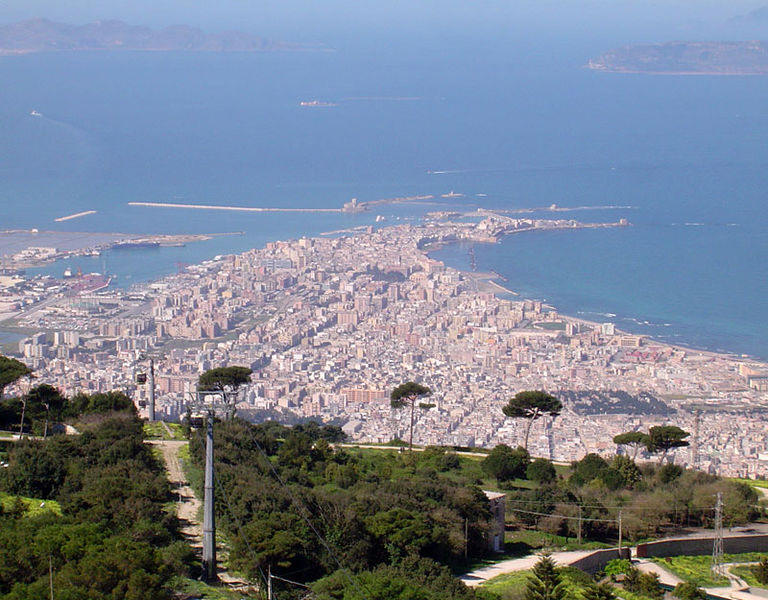
Beautiful port
View Larger Map using Google Maps
Did you know? - Two ancient legends tell of mythical origins for the city. In the first legend, Trapani stemmed from the sickle which fell from the hands of the goddess Demeter while she was seeking for her daughter Persephone, who had been kidnapped by Hades. The second myth features Saturn, god of the sky, who eviscerated his father Cronus with a sickle which, falling into the sea, created the city. In ancient times Saturn was the god-protector of Trapani. Today Saturn's statue stands in a piazza in the centre of the city.
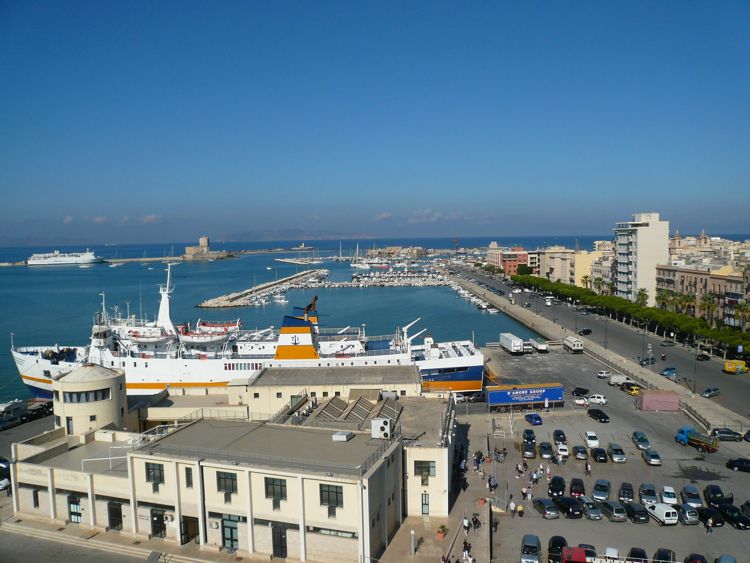
Did you know? - Evidence for human settlement in the area now known as Palermo goes back to the Pleistocene Epoch, around 8000 BC.
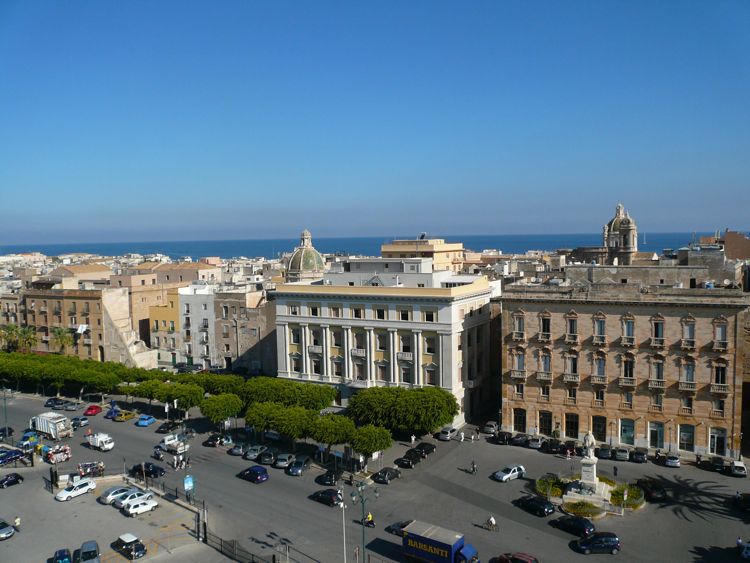
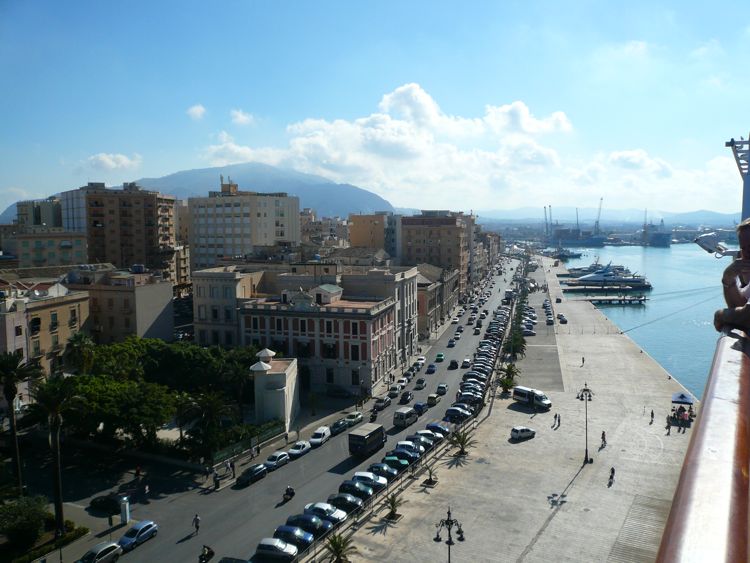

You can't get any closer
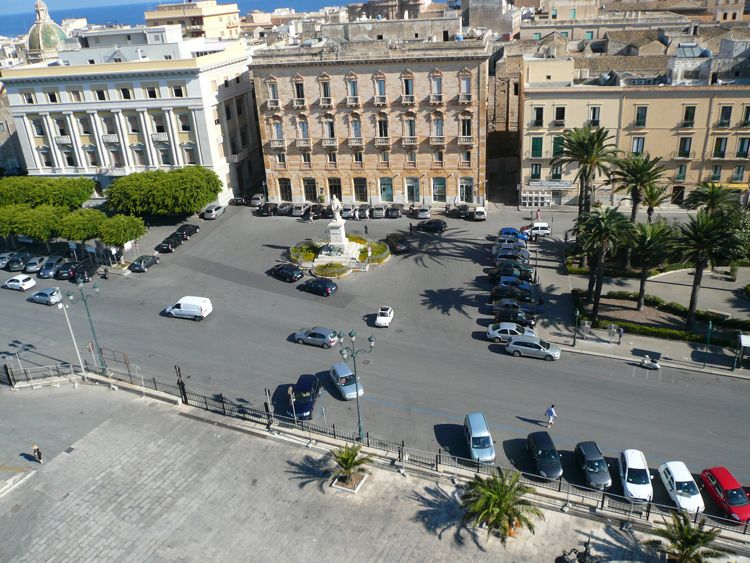
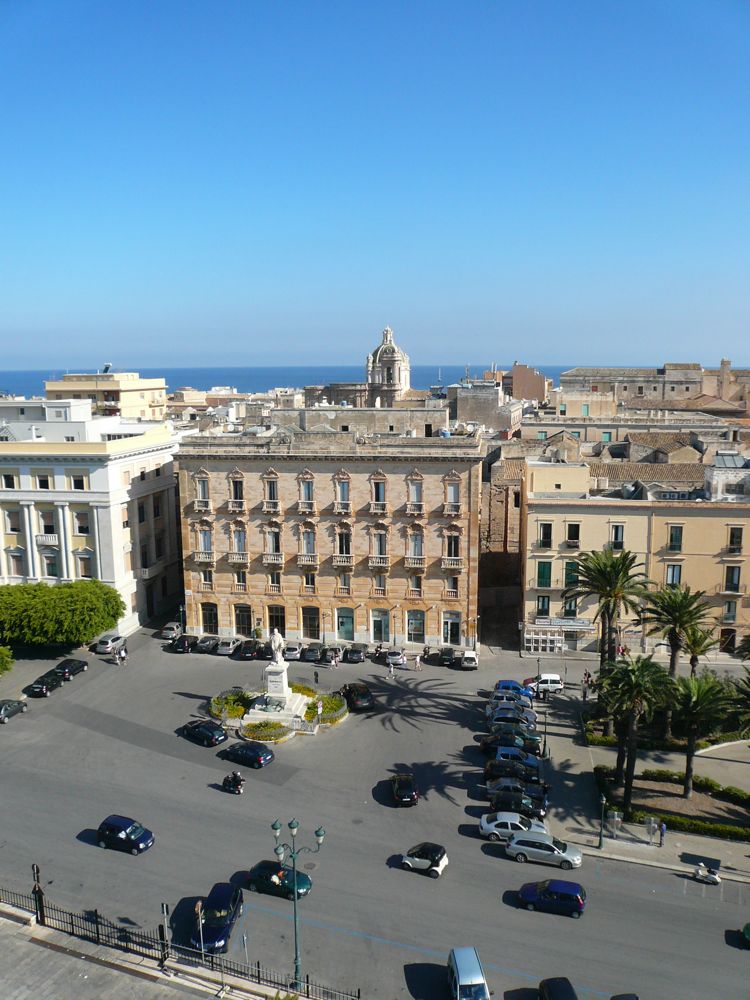
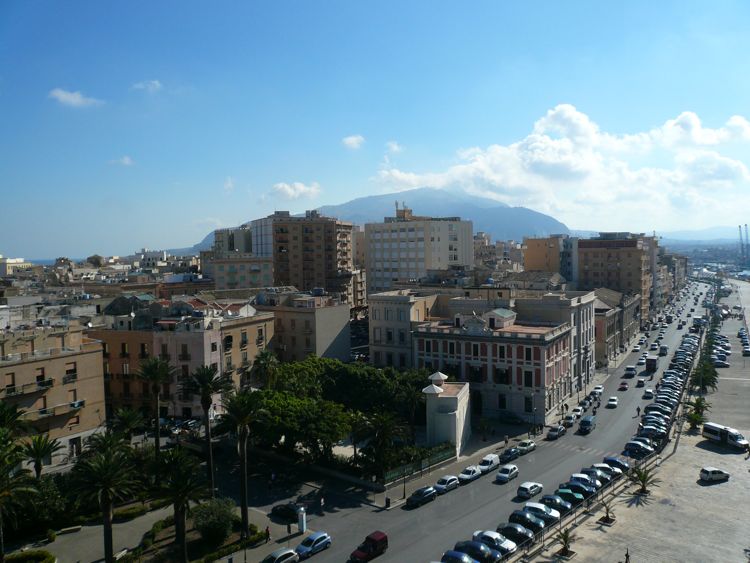
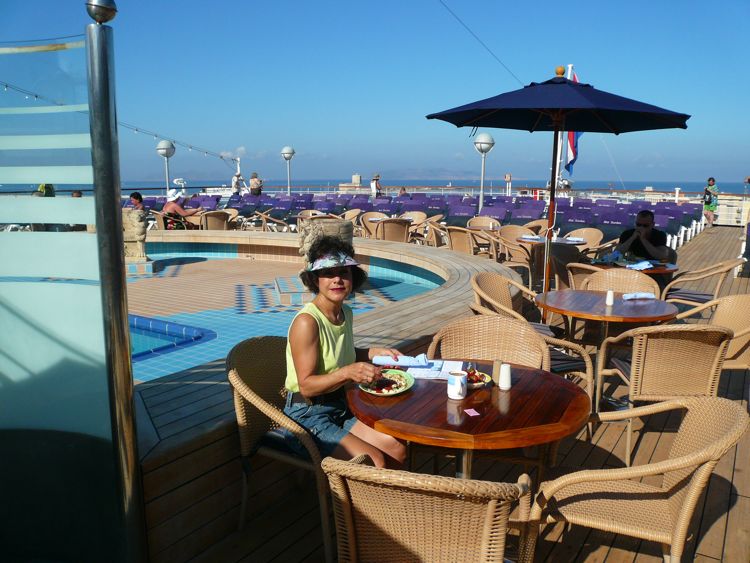
We towered over the city



Time To Explore
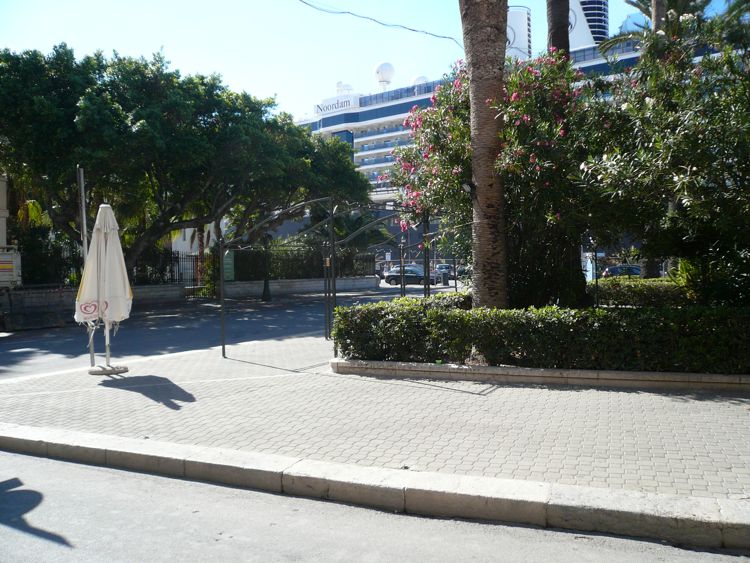

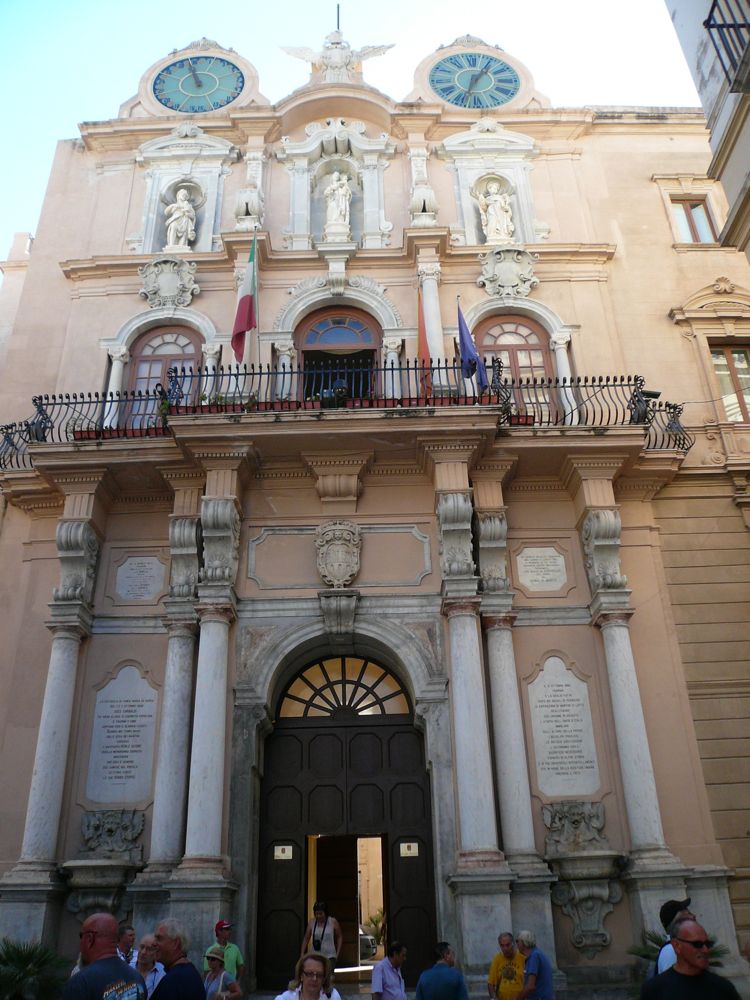
Cloister of the Museum Pepoli


Water fountains everywhere
Did you know? - The city is renowned for its Easter procession, The Misteri, when the city's guilds carry groups of sculpted 17th century and 18th century religious statues through the streets in a procession lasting for 16 hours on Good Friday and Holy Saturday.
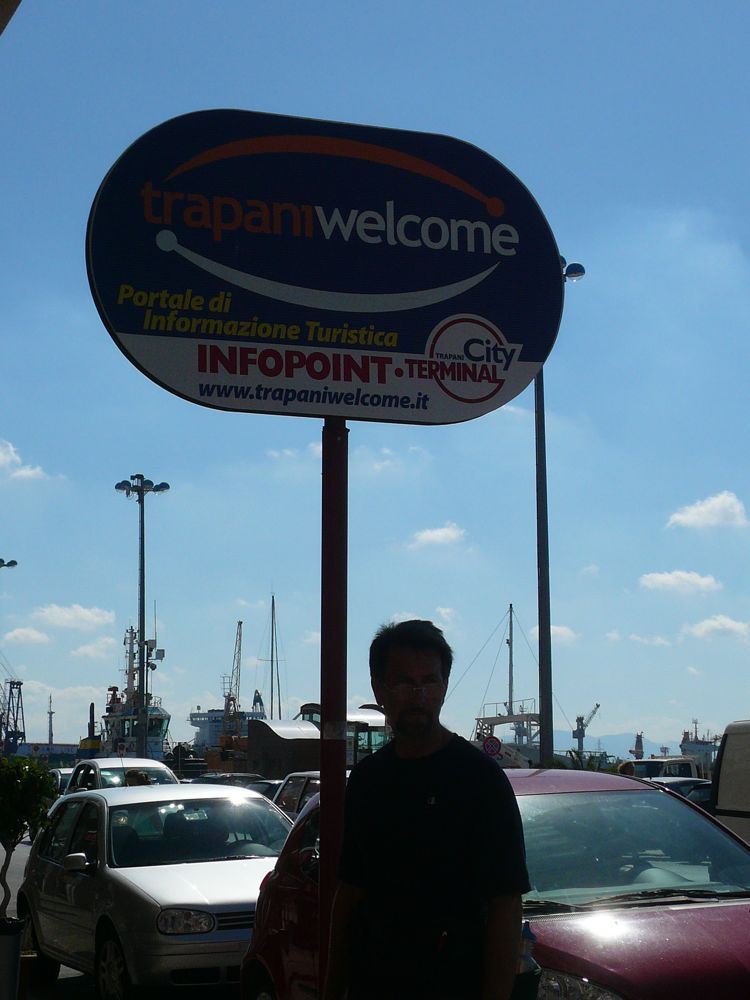

Time For A Bus Ride To Erice
Did you know? - Erice is located on top of Mount Erice, at around 750m above sea level, overlooking the city of Trapani, the low western coast towards Marsala, the dramatic Punta del Saraceno and Capo san Vito to the north-east, and the Aegadian Islands on Sicily's north-western coast, providing spectacular views.

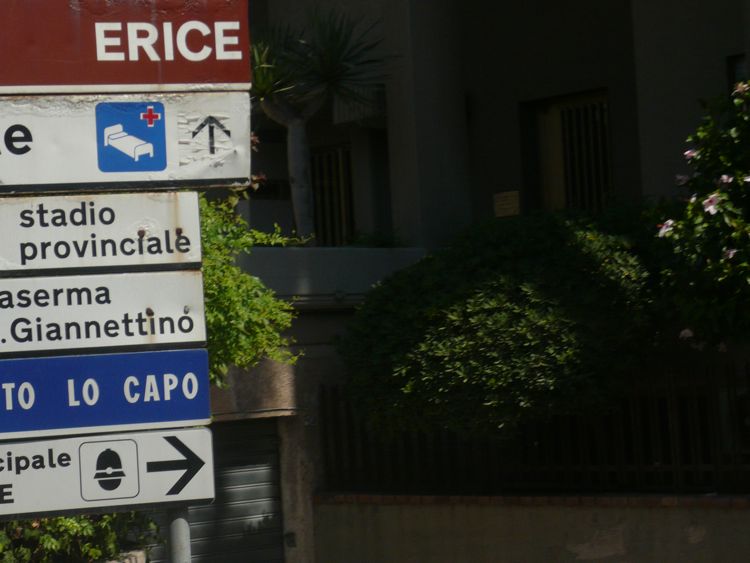

Did you know? - The ancient name of Erice was Eryx, and its foundation was associated with the eponymous Greek hero Eryx. It was not a Greek colony, but was largely Hellenized. It was destroyed in the First Punic War by the Carthaginians, and from then on declined in importance.
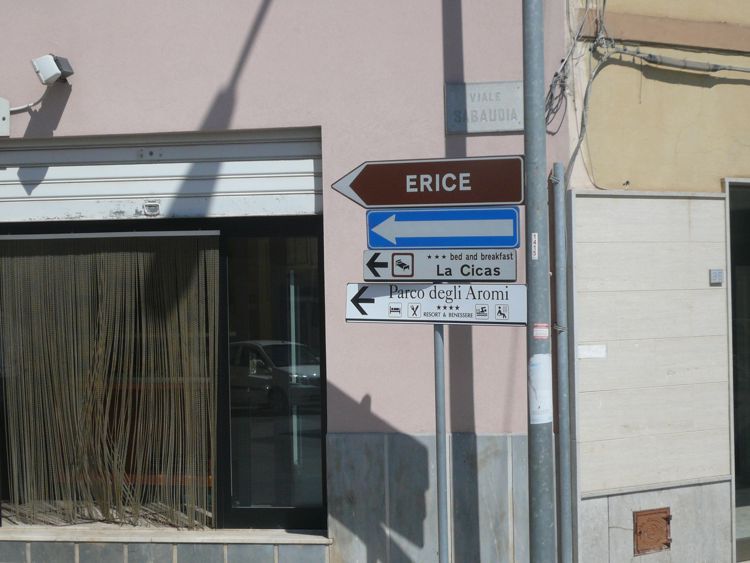
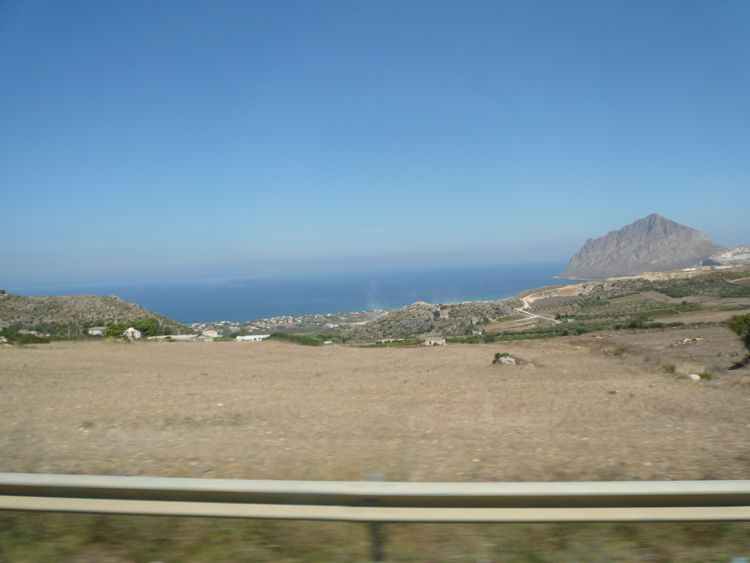
Almost there
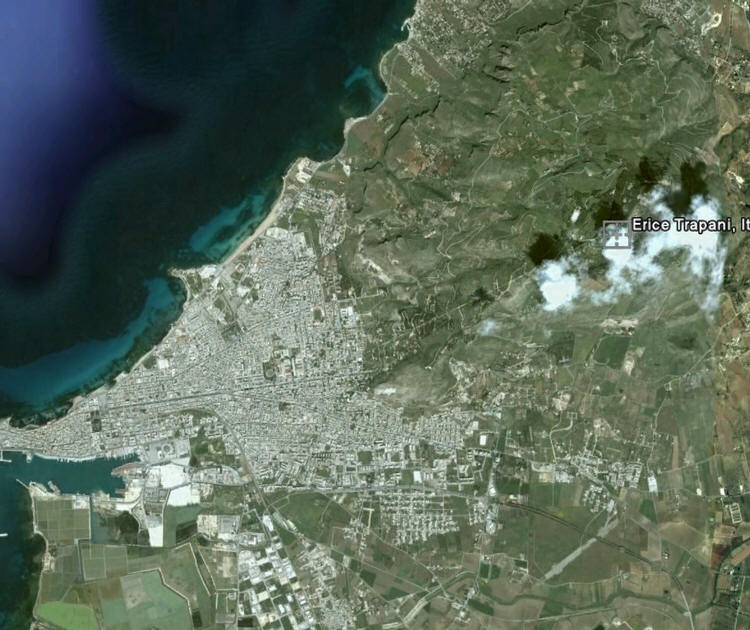
In the clouds
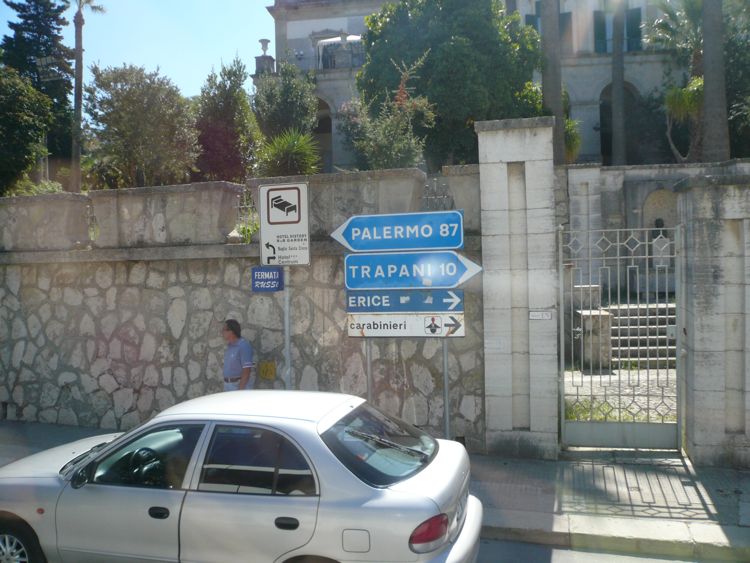

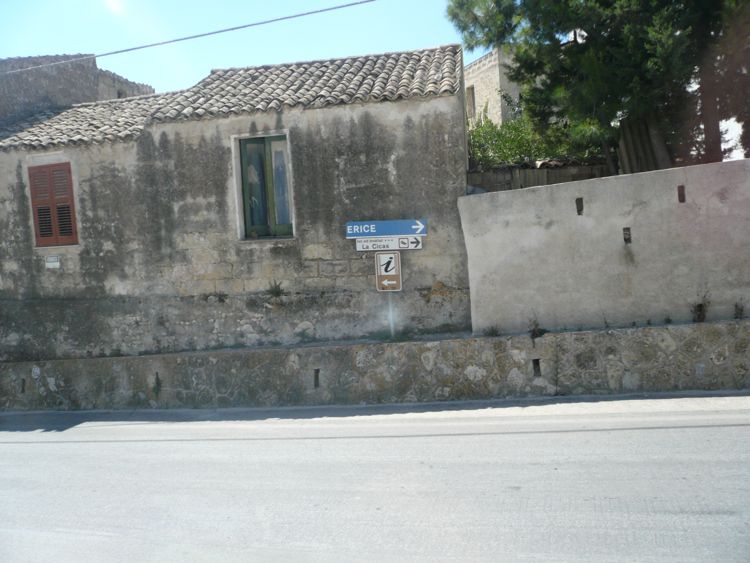


Did you know? - San Vito Lo Capo (Sicilian: San Vitu) is a town and comune in North-Western Sicily, Italy, administratively part of the province of Trapani. It has 3,914 inhabitants as of 2004. The small town is located in a valley between spectacular mountains, and is home to a public beach popular with local vacationers. The town's primary industries are tourism and agriculture, particularly olive groves owned by small farmers.
The town's eastern border is provided by a small range of mountains, the northernmost of which is peaked by a large cross visible from the public beach below. The mountain is popular with local climbers, and a logbook is provided at the cross for climbers to record their adventures. The mountain is also home to numerous caves, most of which are inaccessible without professional climbing gear. A particular cave, accessible by foot at the southern base of the mountain, was named "Caverna della Capra Guasto," or "Cave of the Dead Goat" by explorers Christian D'Angelo and William Spears. The adventurers famously explored the cave's interior using only a camera flash for light, and provide the first historical record of the cave's penetration by humans.
Made It To The Top, Erice

Did you know? - Erice is a historic town and comune in the province of Trapani in Sicily, Italy. Narrow alleyway.Erice is located on top of Mount Erice, at around 750m above sea level, overlooking the city of Trapani, the low western coast towards Marsala, the dramatic Punta del Saraceno and Capo san Vito to the north-east, and the Aegadian Islands on Sicily's north-western coast, providing spectacular views.
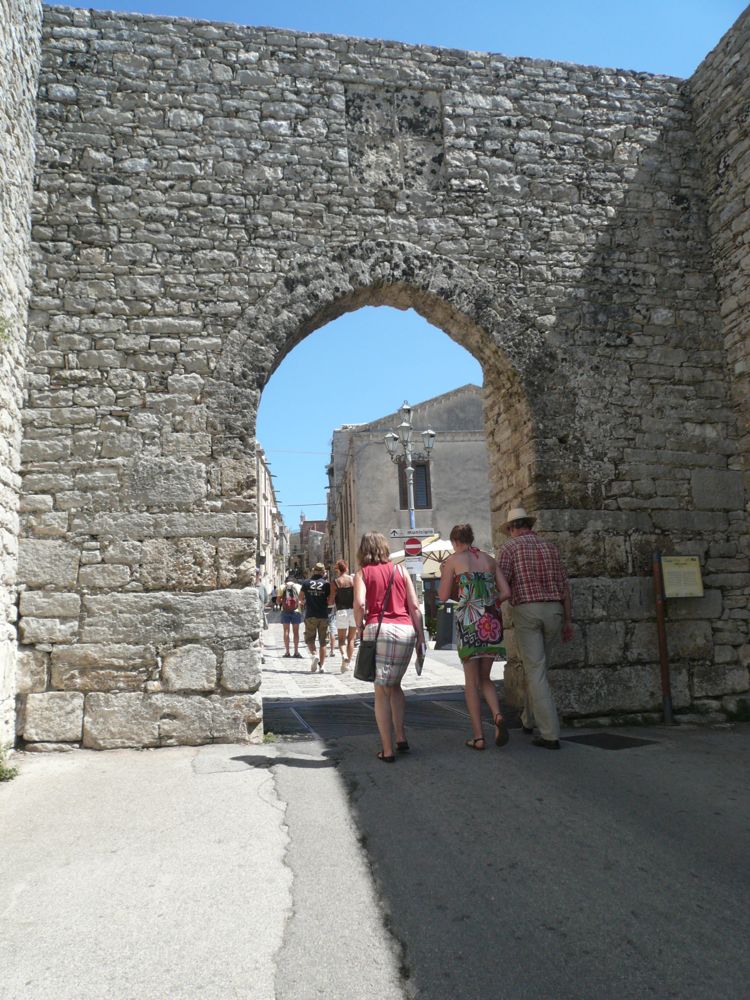
Remains of a Norman Castle


Ahhhh... Civilization

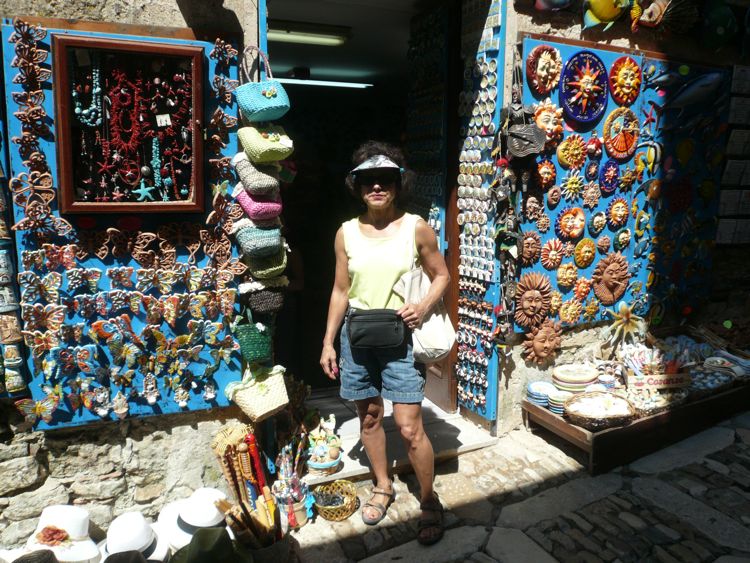
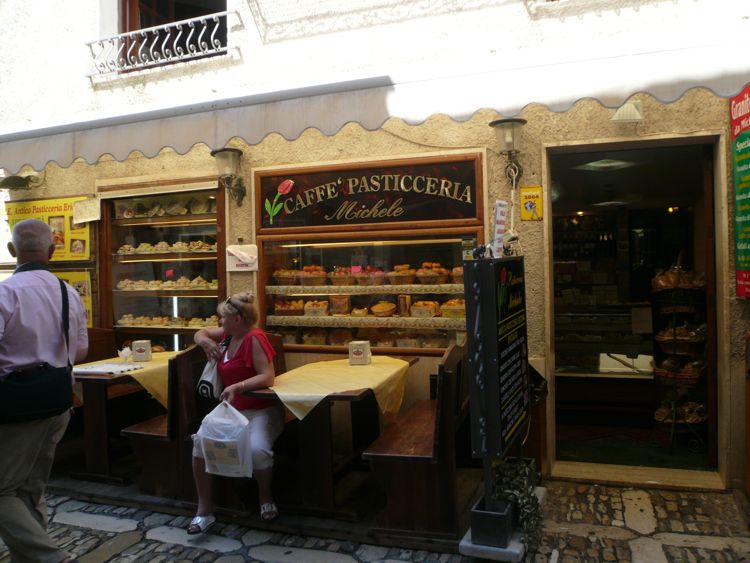
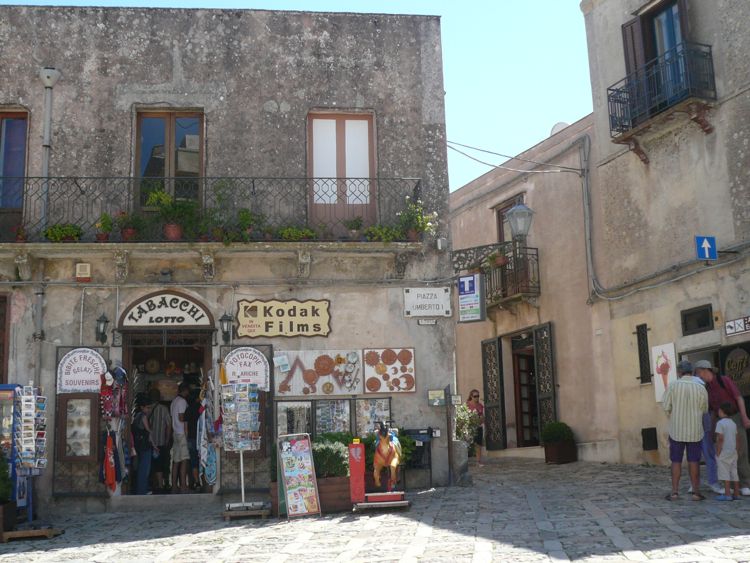


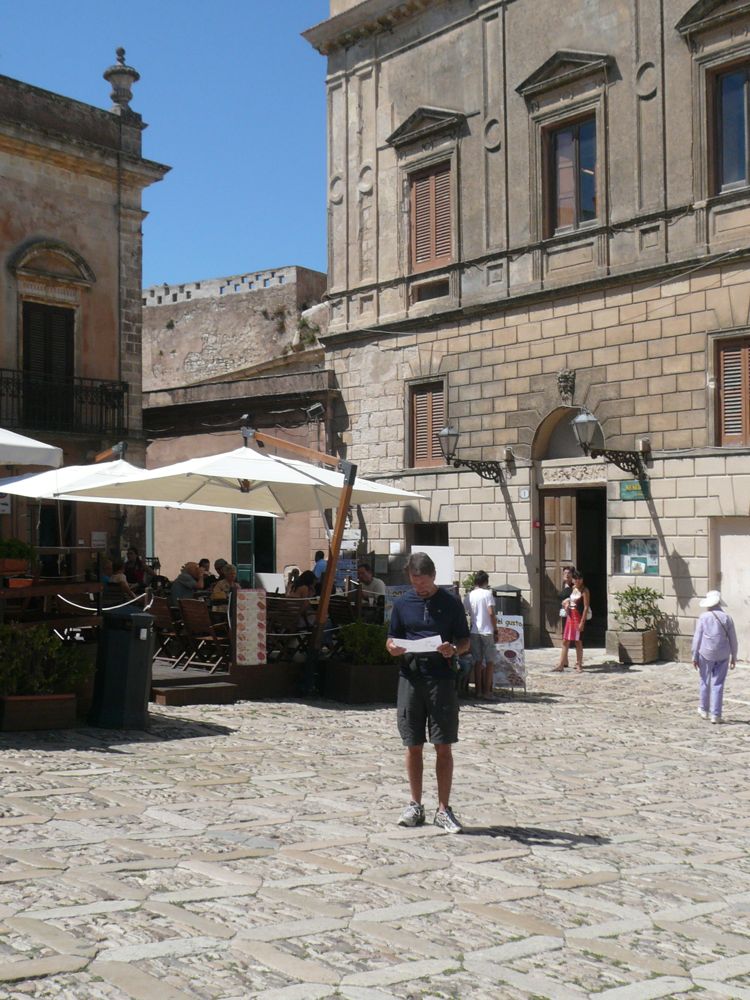
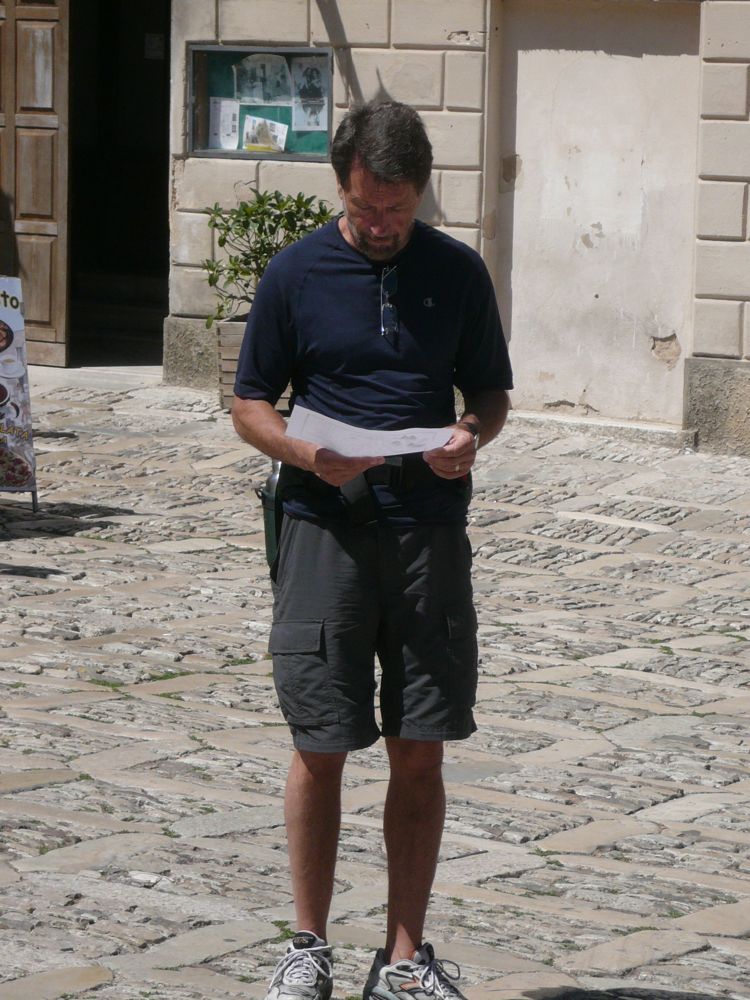
"I don't even know Italian!"
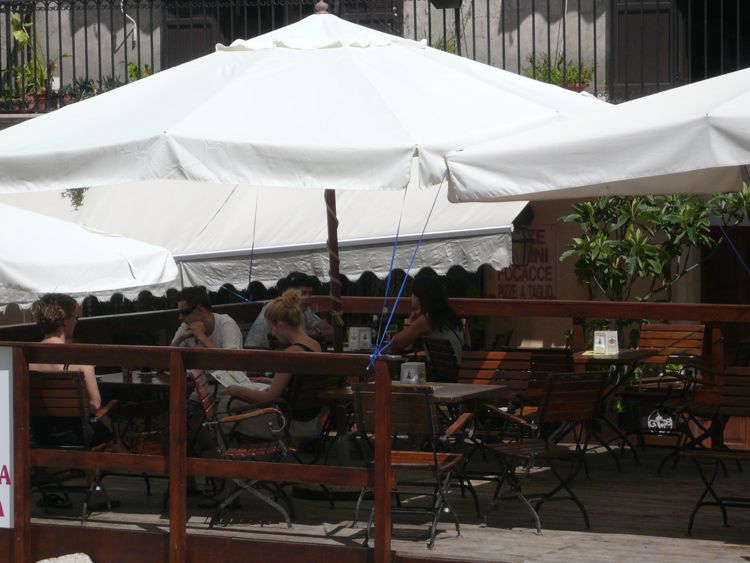

Did you know? - The Chiesa Matrice is a church in Erice, Sicily, southern Italy. It dates back the beginning of the 15th century (an original fresco dates back to 1420) and is built in the shape of a Latin cross with two entrances. The church is enriched by numerous Baroque altars and paintings from the 17th century. A silver statue of St. Anthony of Padua dates back 17th century and is an example of Neapolitan silver-craft.
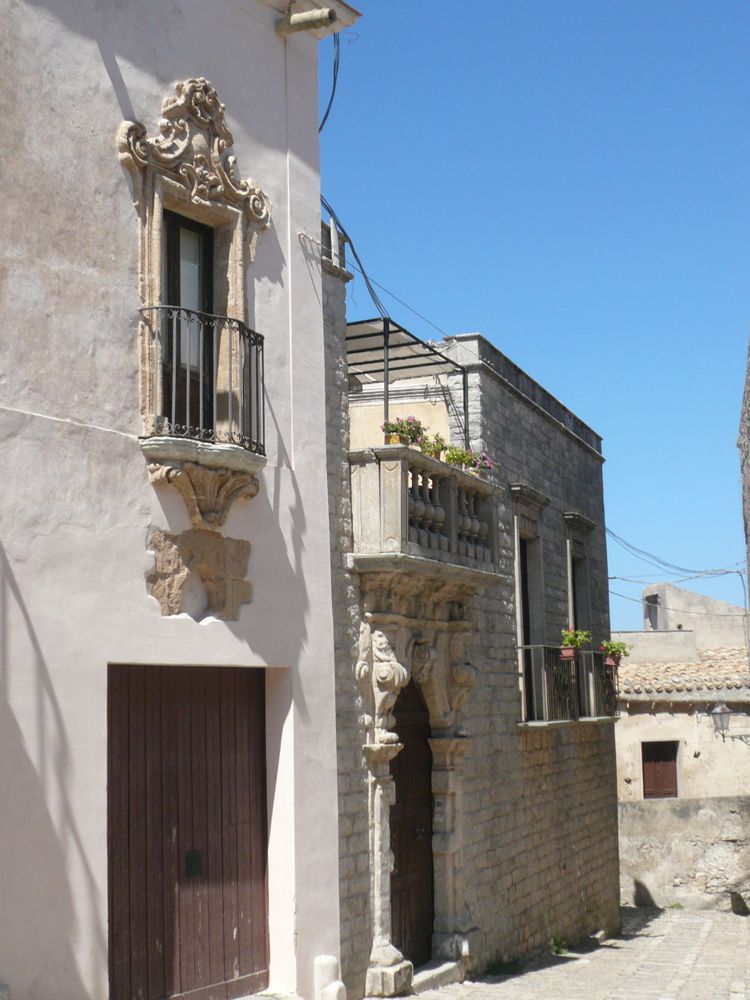

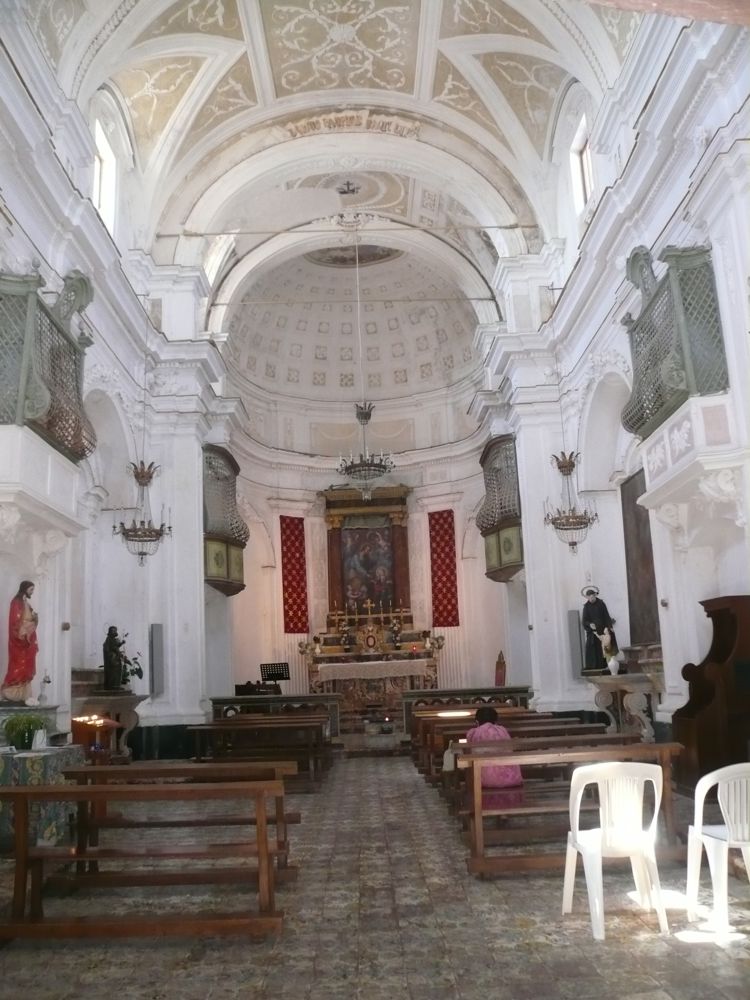

Did you know? - The Chiesa Matrice is a church in Erice, Sicily, southern Italy. It dates back the beginning of the 15th century (an original fresco dates back to 1420) and is built in the shape of a Latin cross with two entrances. The church is enriched by numerous Baroque altars and paintings from the 17th century.
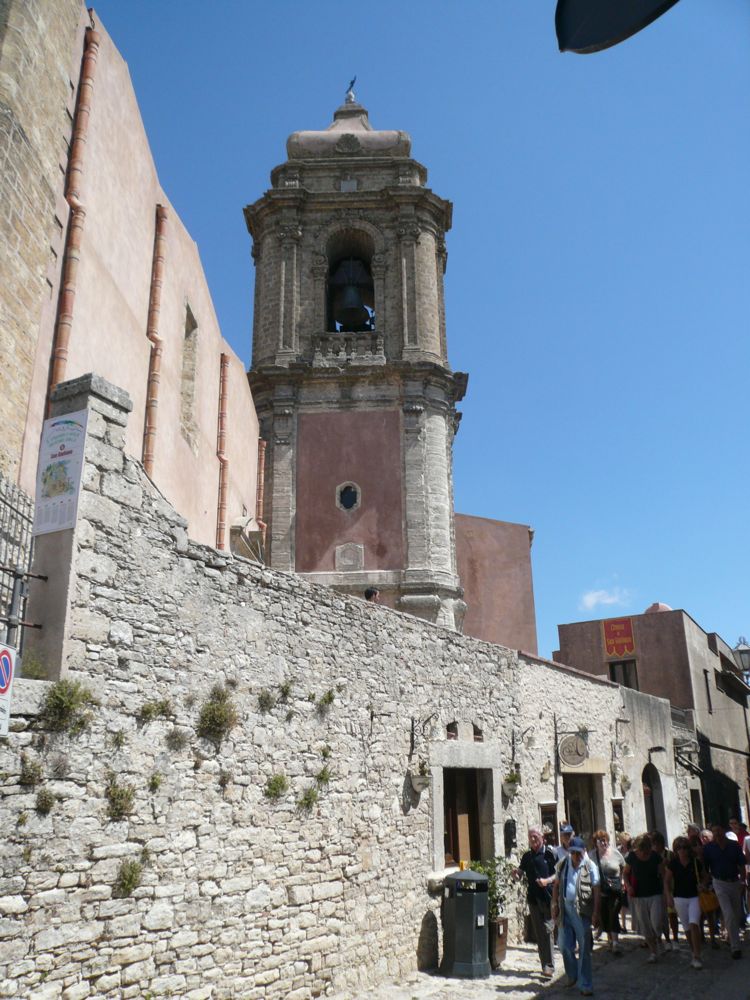
Did you know? - Of the several churches and other monuments in this small, quiet town, the Chiesa Madre, just inside Porta Trapani, is probably the most interesting by virtue of its campanile (bell tower) with mullioned windows. Built in 1314, the church had its interior, which has a lovely vaulted ceiling, remodelled in the neo-Gothic style in 1865, but the 15th-century side chapels were conserved.



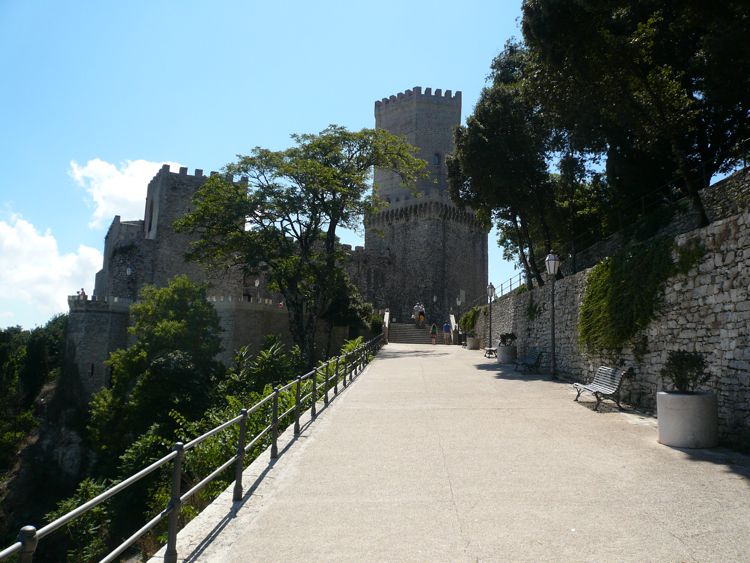
Did you know? - The most characteristic monument in Caccamo is, without any doubt, the Castle, which towers majestically above a sheer-dropping rock. The Castle is solid and compact in appearance, a typical fortified building with continuous curtain walls, bastion and battlements. Built by the Normans, possibly on the site of a pre-existing fortress, it was altered on various occasions. - in the 14C, in the Chiaromontine age, and at various other times. The windows in the facades and the balconies testify to the various historical and artistic styles. This is the castle where in 1160 Matteo Bonelli plotted against King William the Bad.


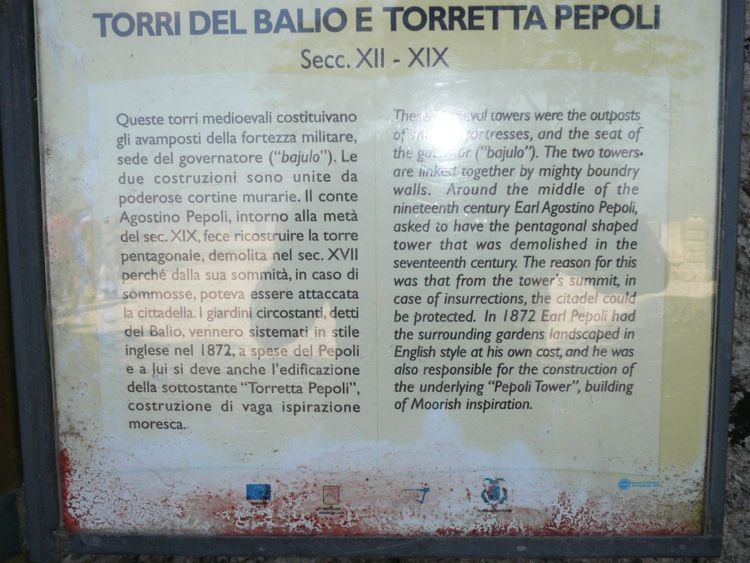
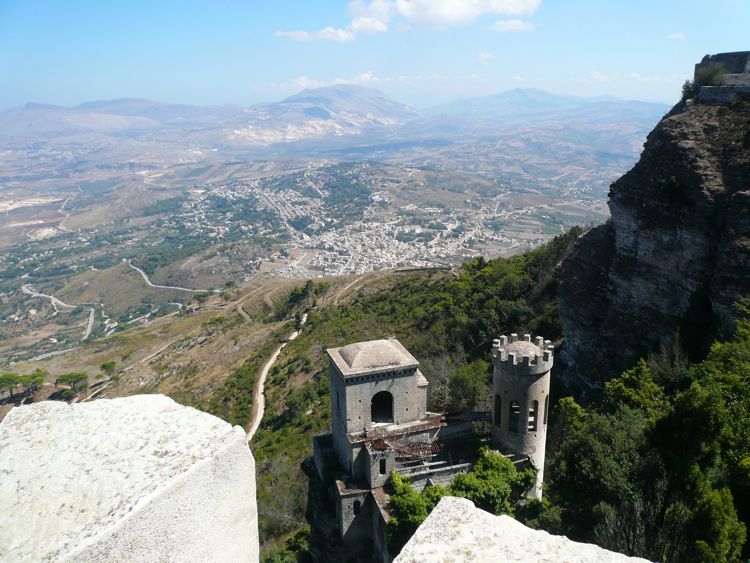
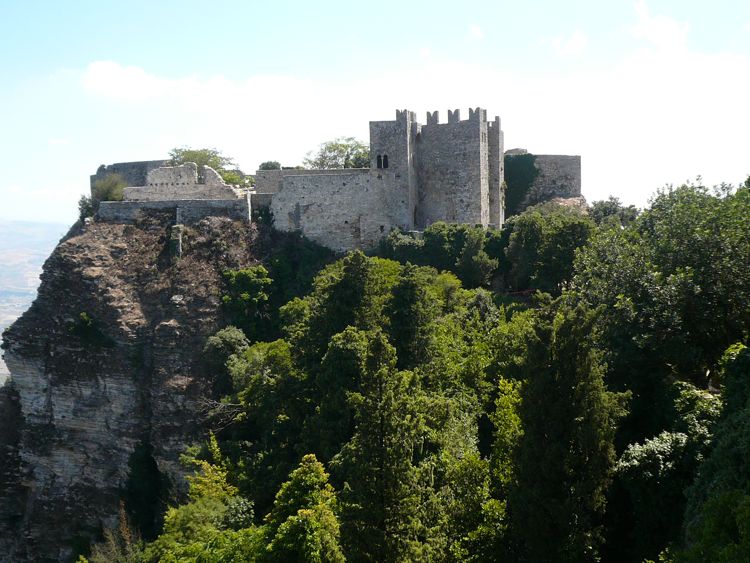



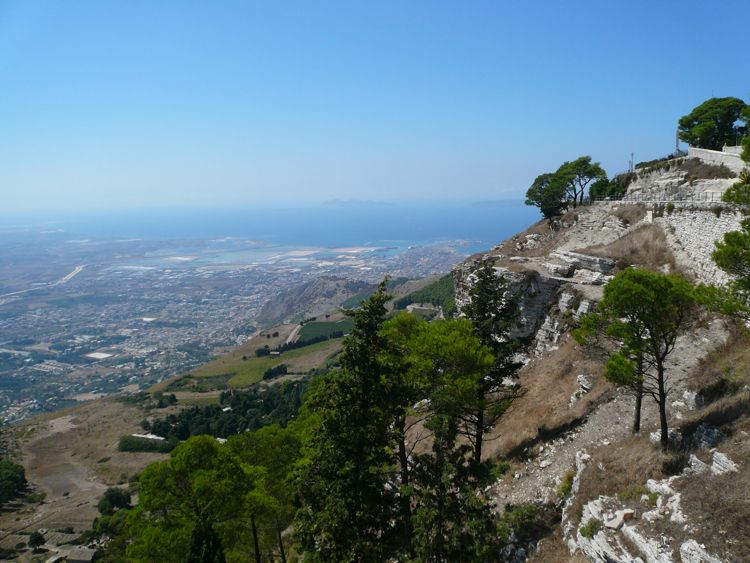

Did you know? - There are two castles that remain in the city: Pepoli Castle, which dates from Saracen times, and the Venus Castle, dating from the Norman period, built on top of the ancient Temple of Venus, where Venus Ericina was worshipped. According to legend, the temple was founded by Aeneas. It was well-known throughout the Mediterranean area in the ancient age, and an important cult was celebrated in it. In his book On the Nature of Animals, Aelian writes that animals chosen for sacrifice would voluntarily walk up to the altar to be killed.
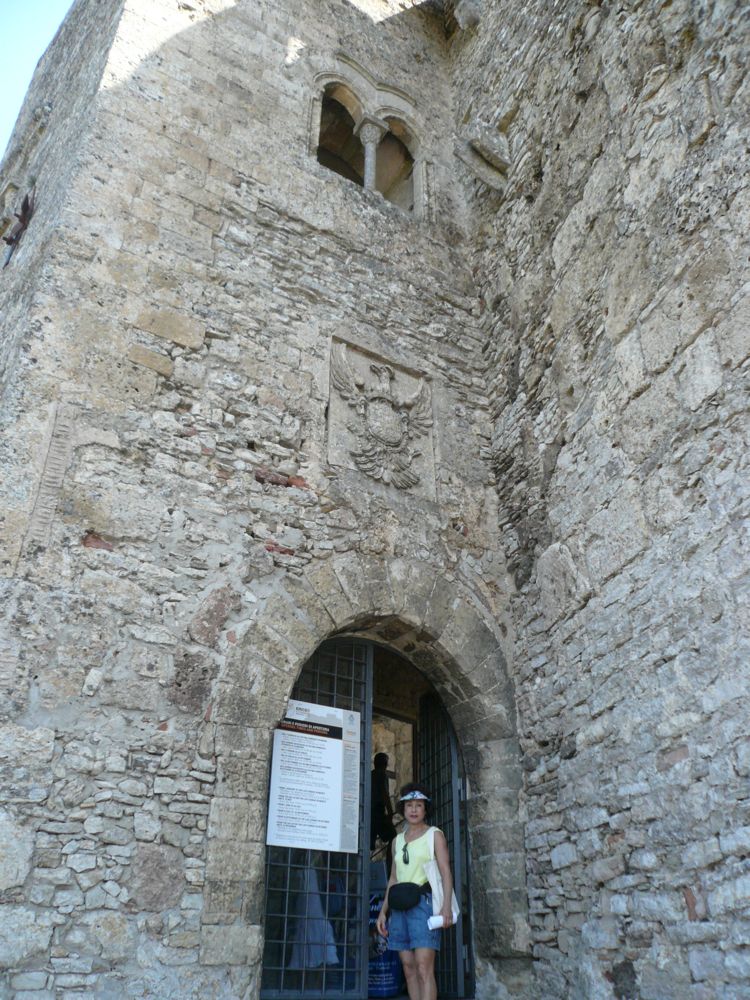


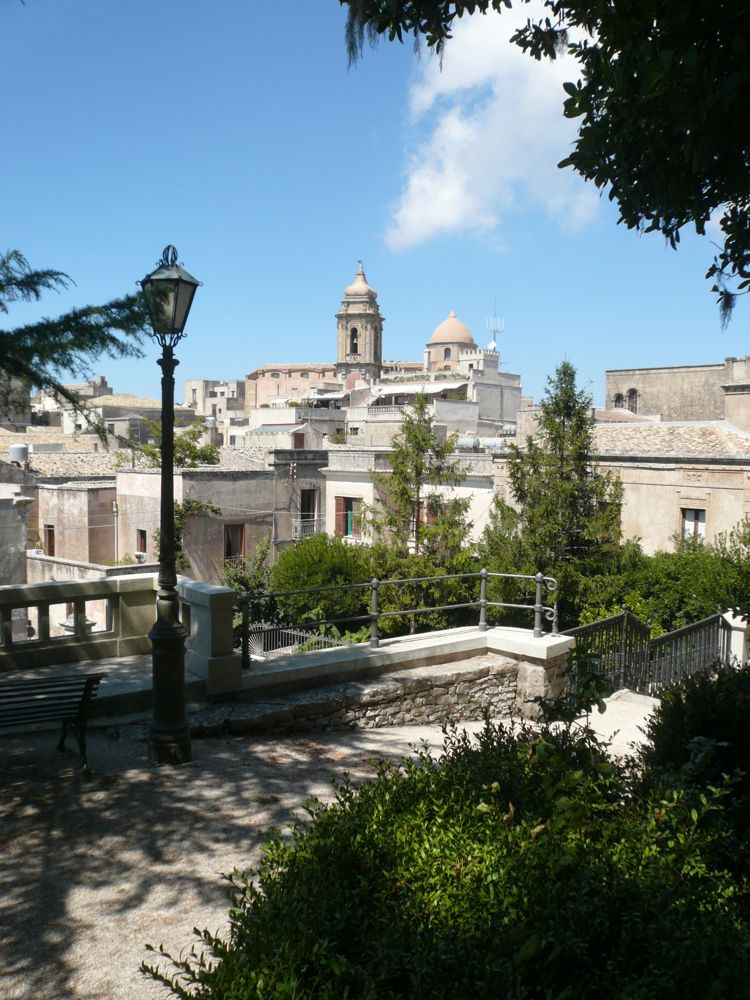



Back Down The Mountain
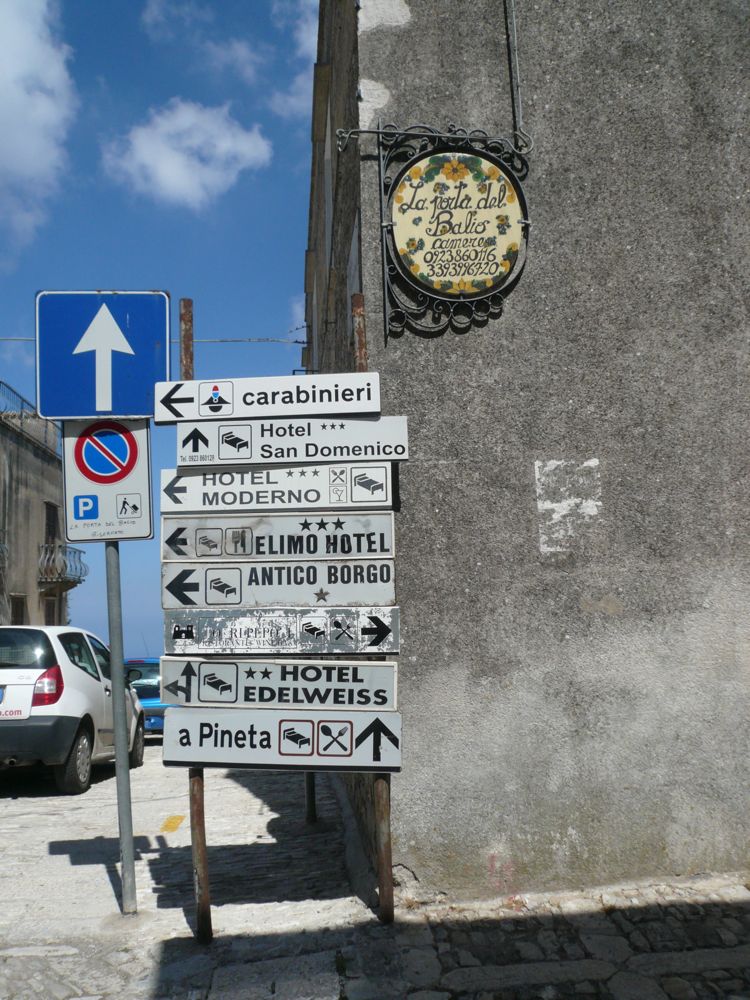
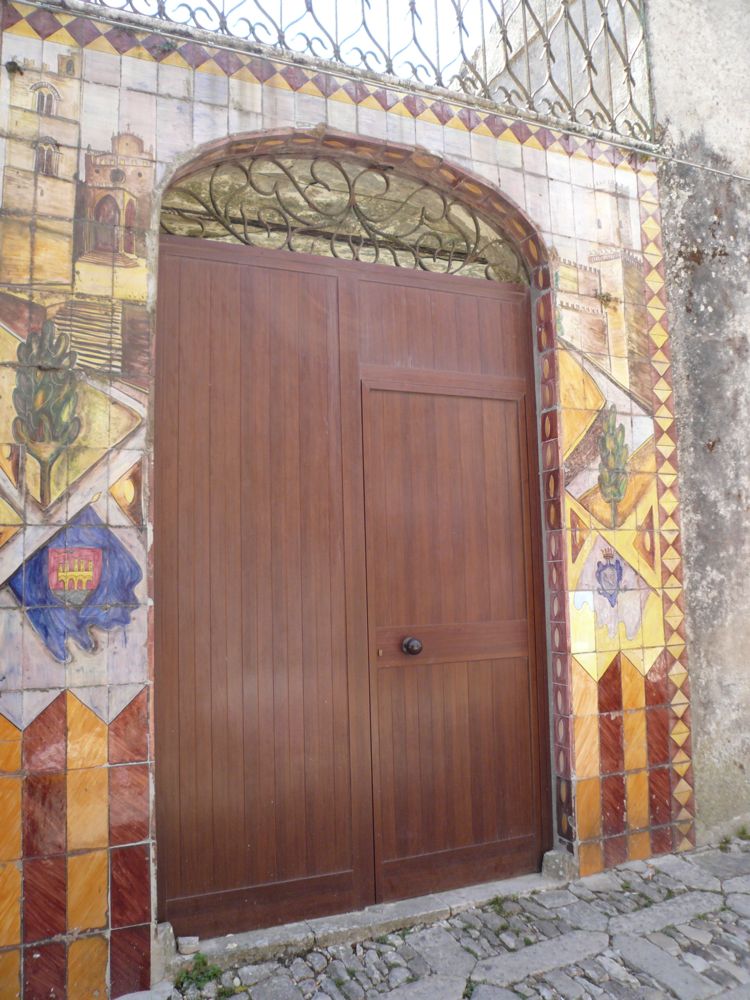

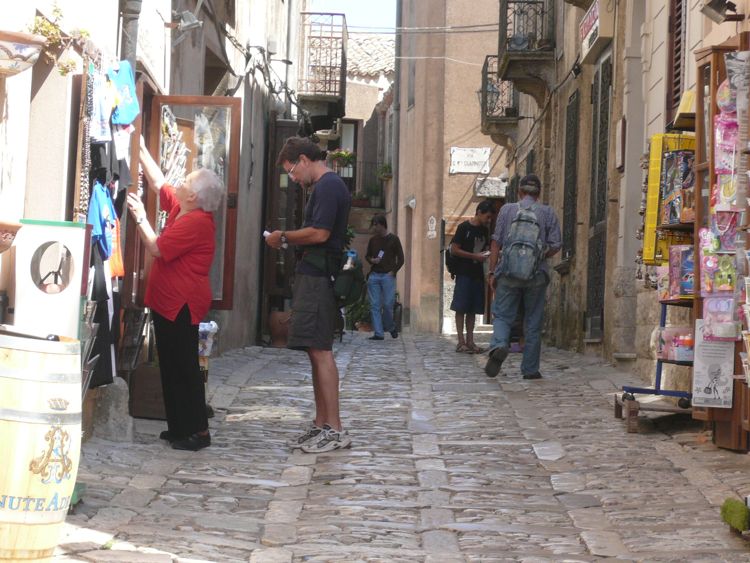

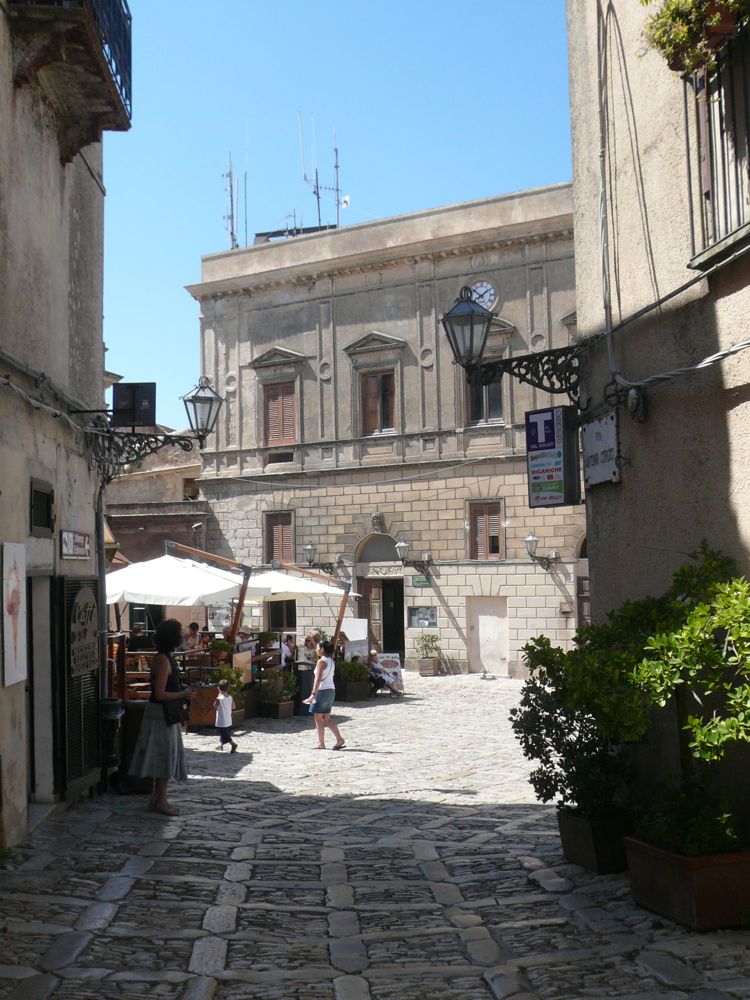
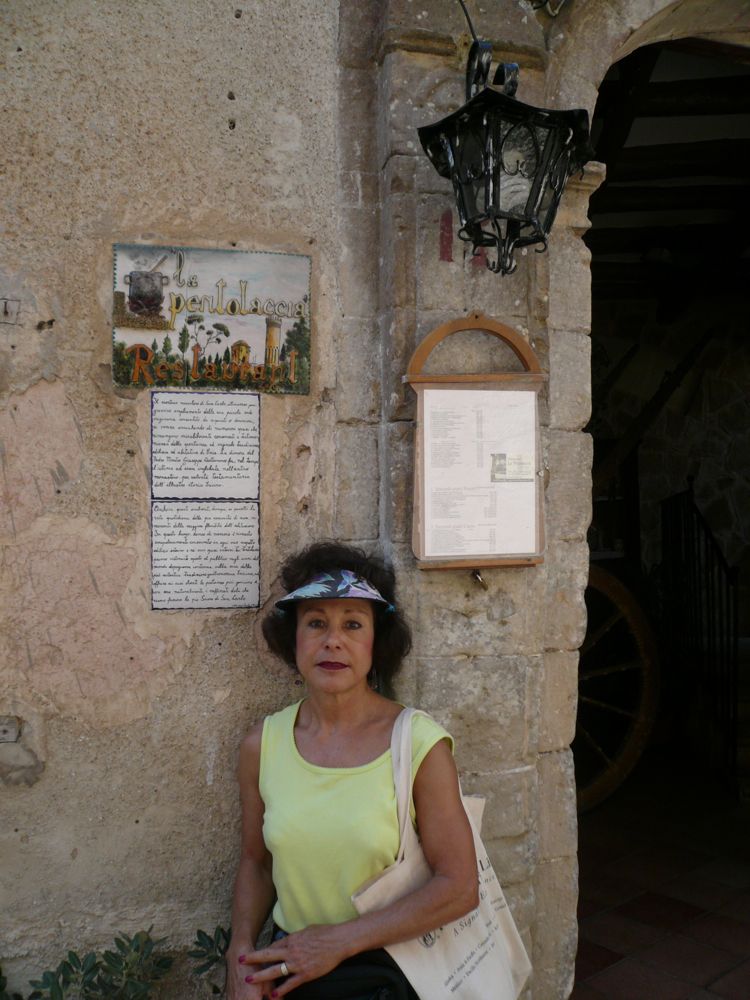
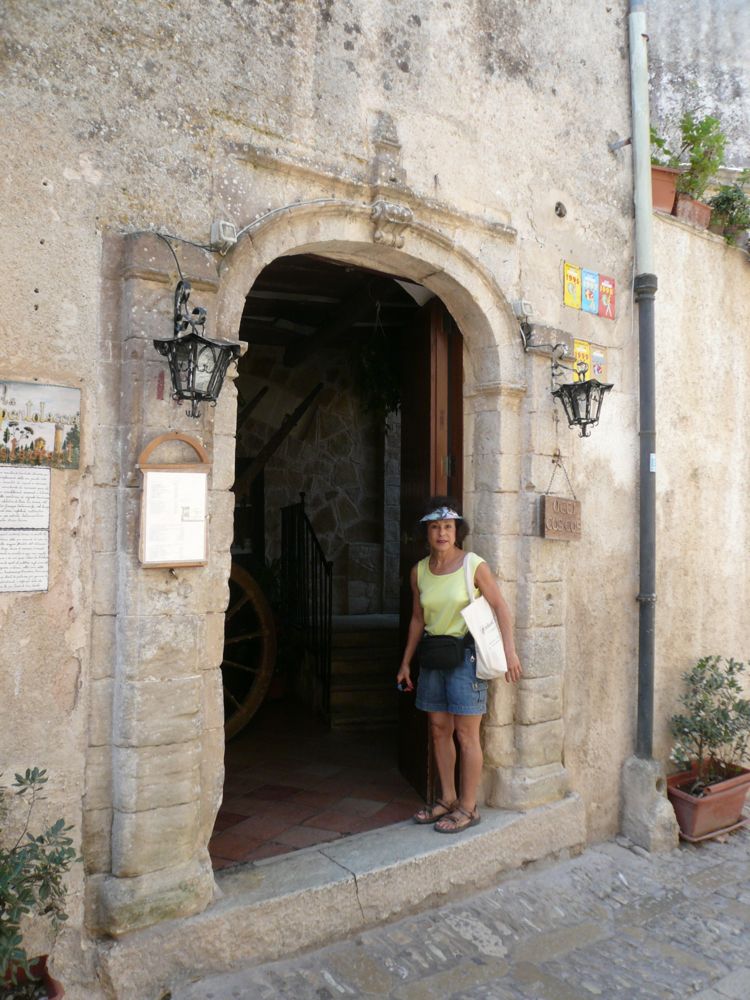


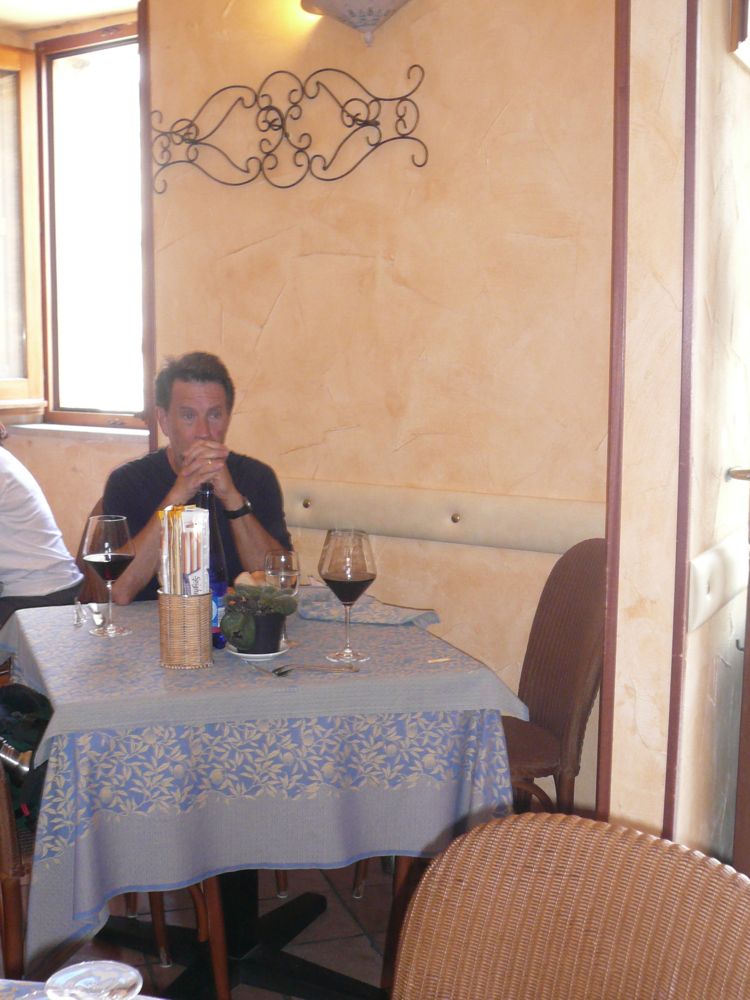
Wine to re-energize the old bones



A cable car (funivia) runs from the outskirts of Trapani to the town of Erice.
The cablecar closes from mid January to mid March.

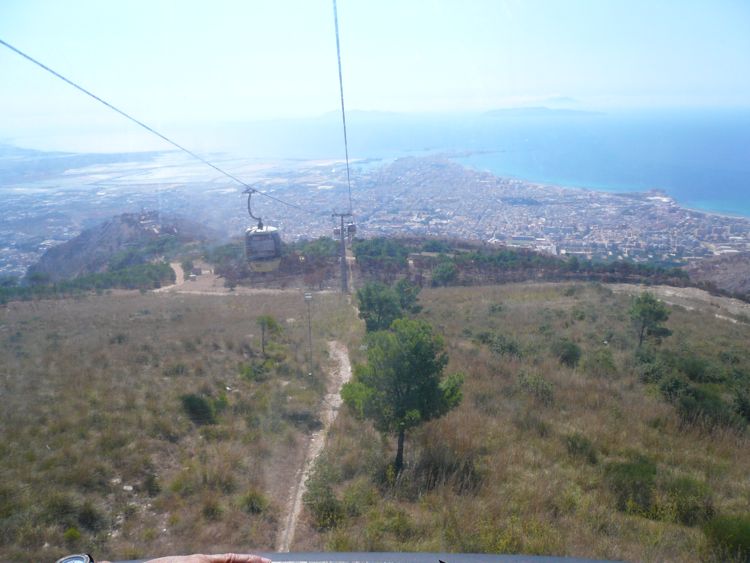

Time To Walk

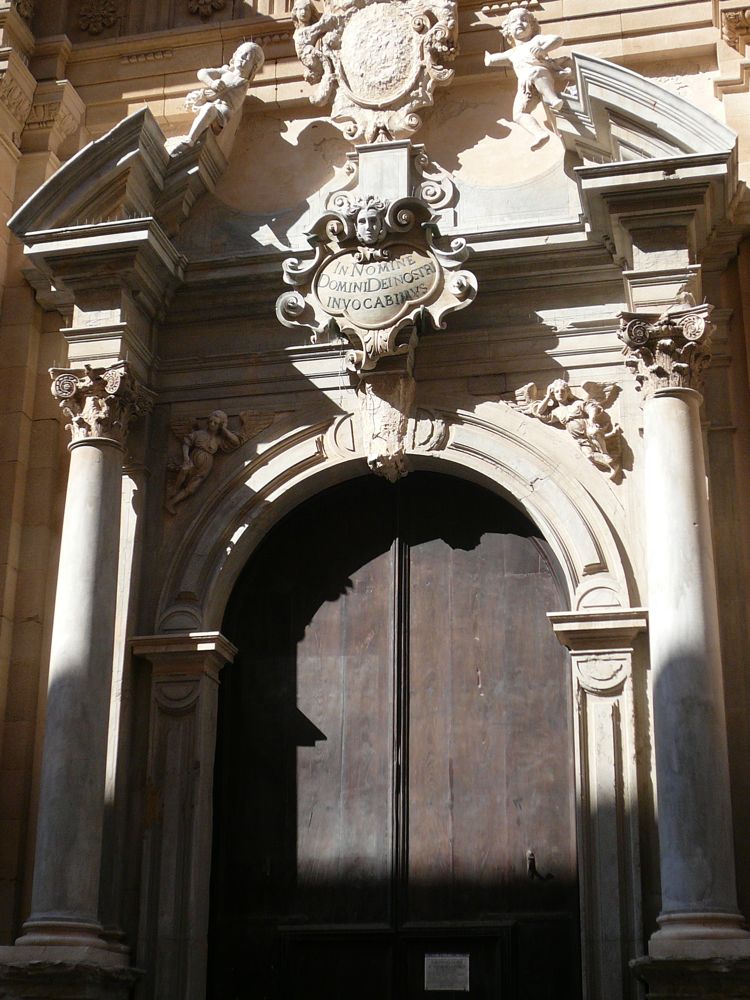





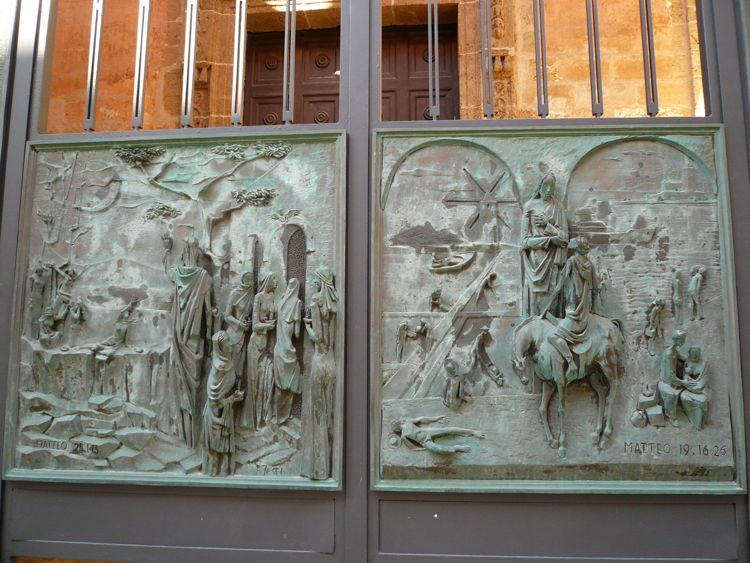

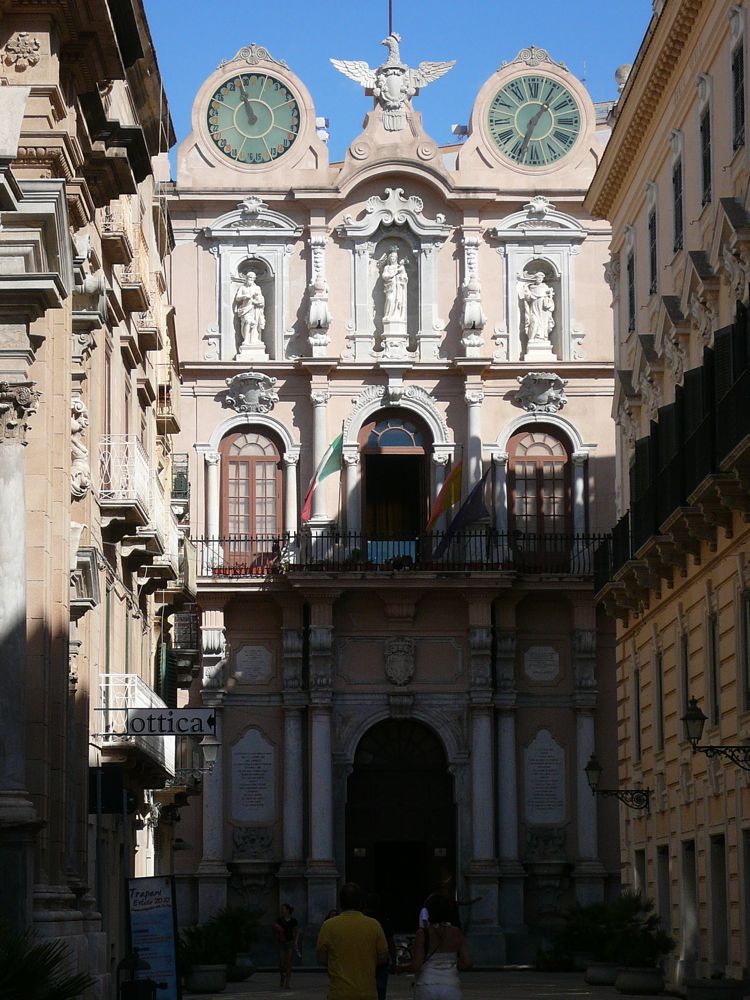
Palazzo Cavarretta in Via Torrearsa a Trapani
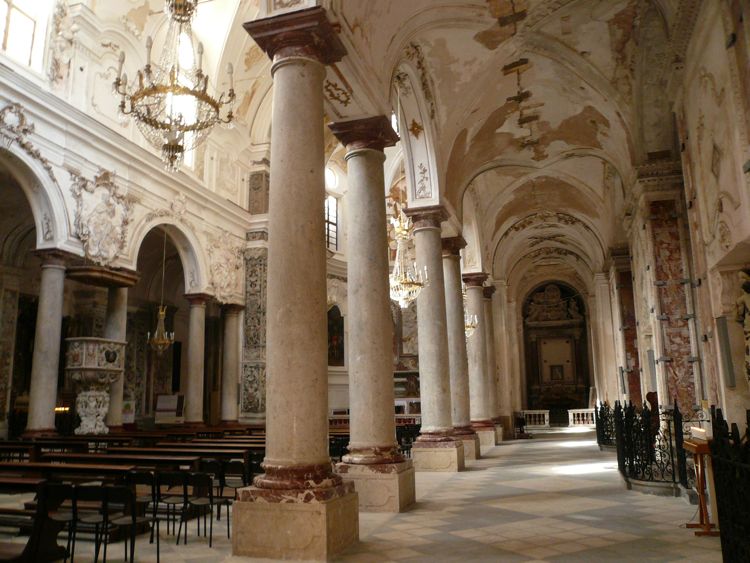

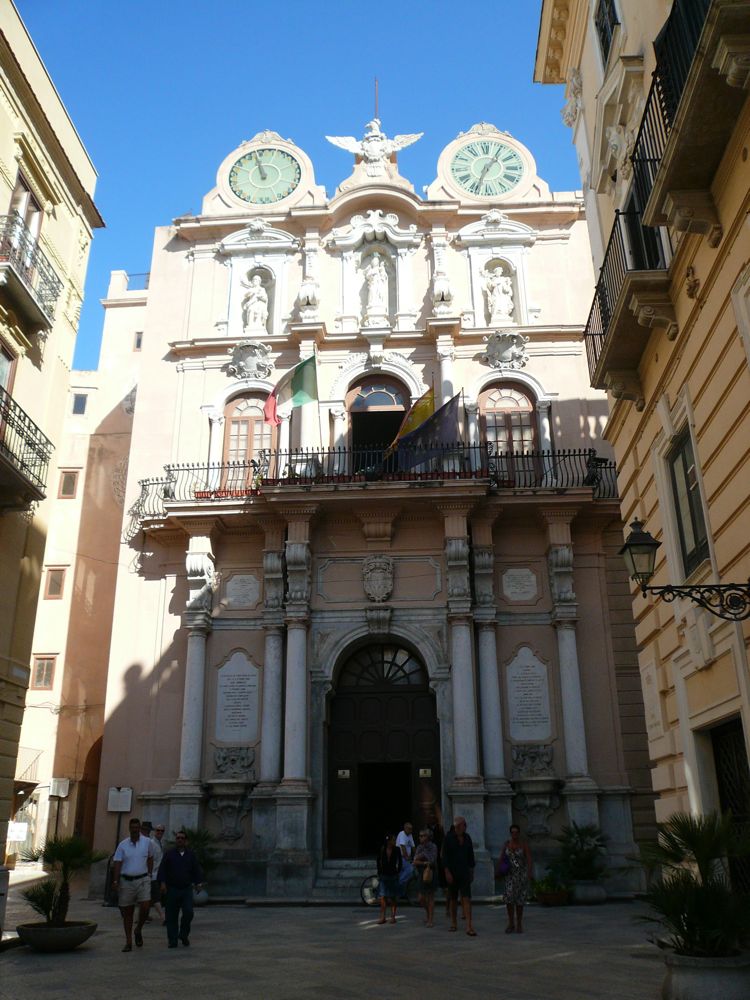
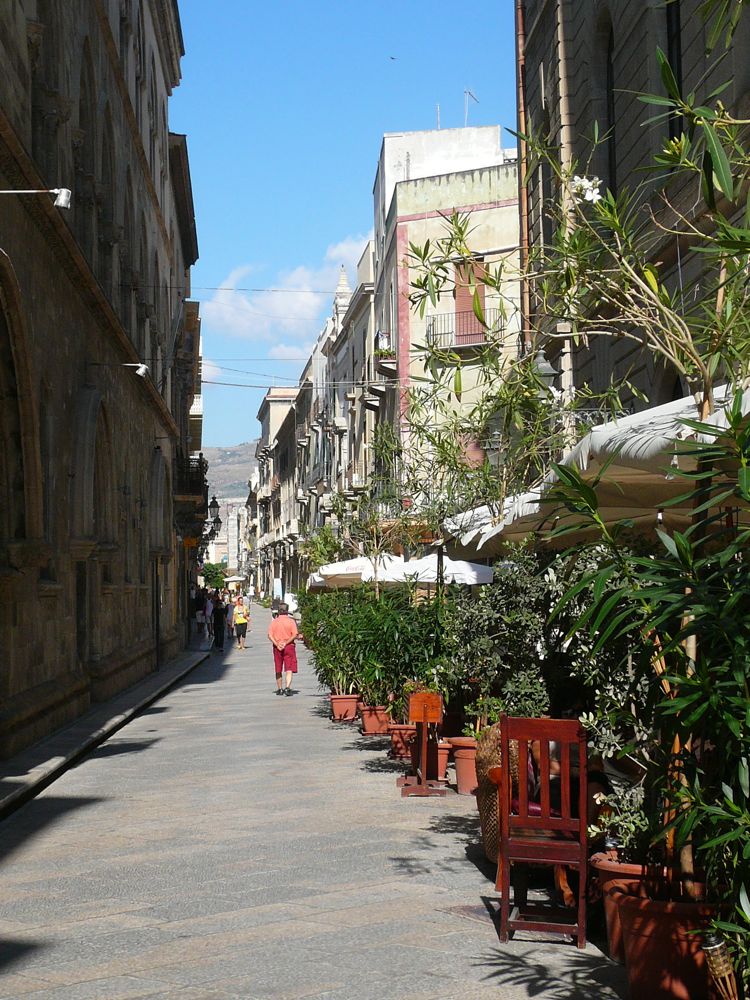
View Larger Map on Google Maps

Next Destination:
Napels and Pompei
- Page 1: Summary
- Page 2: Florence Italy
- Page 3: Monte Carlo
- Page 4: Barcelona Part One
- Page 5: Barcelona Part Two
- Page 6: Barcelona Part Three
- Page 7: Majorca
- Page 8: Tunisia Part One
- Page 9: Tunisia Part Two
- Page 10: Trapani, Sicily
- Page 11: Napels (Pompeii)
- Page 12: Roma Part One
- Page 13: Roma Part Two
- Page 14: Roma Part Three
- Page 15: Roma Part Four
- Page 16: Roma Part Five